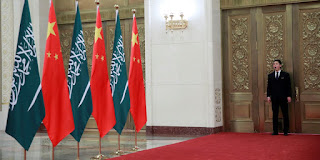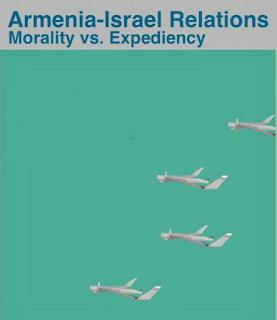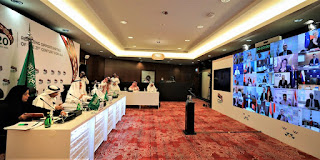Saudi Arabia’s Problems: Not Just a Pandemic and Economics, but Geopolitics Too

A Chinese security officer stands guard at the Great Hall of the People in Beijing where Saudi Crown Prince Mohammad bin Salman and Chinese President Xi Jinping hold a meeting. Feb. 22, 20 (How Hwee Young Pool Photo via AP) By James M. Dorsey This story was first published in Inside Arabia A podcast version of this story is available on Soundcloud, Itunes , Spotify , Stitcher , TuneIn , Spreaker , Pocket Casts , Tumblr , Podbean, Audecibel , Patreon and Castbox. Saudi Crown Prince Mohammed bin Salman may feel that the global pandemic and its economic fallout are the more immediate of his problems as the kingdom gradually lifts restrictions put in place to stymie the spread of the coronavirus. However, looming large on the horizon is a potential rift with the United States as a result of the kingdom’s price war with Russia that contributed to the collapse of oil markets and an existential crisis for America’s shale industry. US President Donald J. Tr





